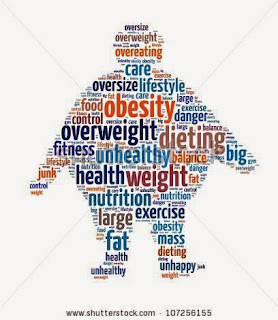Why are so many people Obese?
It goes much deeper than you might imagine. It's much more than just
eating too many calories and not enough exercise. There are hidden
dangers in our food supplies........
Antibiotics
Antibiotics can save your life if they're necessary, such as if you
develop a serious bacterial infection, but you don't need antibiotics
for every ear, nose, or throat infection you come down with.
Remember that antibiotics are useless against the viral infections that
cause the common cold and the flu, and when used for this purpose, they
will only harm your health by wiping out the good bacteria in your gut.
Beneficial bacteria (probiotics) are, in fact, so crucial to your
health that researchers have compared them to "a newly recognized
organ," and have even suggested we consider ourselves a type of
"meta-organism."
This is an acknowledgment of the fact that we
cannot be healthy without the participation of a vast array of
beneficial microbes. While overused in medicine, the primary source of
antibiotic exposure is actually through your diet.
The US
uses nearly 30 million pounds of antibiotics each year to raise food
animals. This accounts for about 80 percent of all antibiotics used in
the US. In livestock, antibiotics are used both to ward off disease and
to promote weight gain.
Research suggests antibiotics have the
same effect in humans. According to data analyzed by journalist Maryn
McKenna, the states with the highest levels of antibiotic overuse also
have the worst health status in the United States, including the highest
rates of obesity.
Endocrine Disrupting Chemicals, Including Pesticides
Many common household chemicals are known as endocrine disruptors, a
number of which are found in plastic products. These chemicals are
similar in structure to natural sex hormones such as estrogen, and can
interfere with their normal functions.
Some of the most
pervasive examples include bisphenol-A (BPA), PCBs, phthalates,
triclosan, agricultural pesticides, and fire retardants.
As
Rosenberg notes, endocrine disruptors are not only associated with an
elevated risk for infertility, low sperm counts, precocious puberty,
diabetes, and other health problems. They’ve also been linked to
obesity.
“As early as 2003, the journal Toxicological Sciences
addressed effects that endocrine disruptor have on fetal development
that likely play a role in adult obesity,” Rosenberg writes.
Interestingly, many endocrine disrupting chemicals have been found to
promote weight gain specifically at below-toxic levels. As noted by the
authors of that paper:
“This article presents data showing that
the current epidemic in obesity cannot be explained solely by
alterations in food intake and/or decrease in exercise.
There
is a genetic predisposition component of obesity; however, genetics
could not have changed over the past few decades, suggesting that
environmental changes might be responsible for at least part of the
current obesity epidemic...
Indeed, many synthetic chemicals
are actually used to increase weight in animals. This article provides
fascinating examples of chemicals that have been tested for toxicity by
standard tests that resulted in weight gain in the animals at lower
doses than those that caused any obvious toxicity. These chemicals
included heavy metals, solvents, polychlorinated biphenols,
organophosphates, phthalates, and bisphenol A. This is an aspect of the
data that has generally been overlooked.”
Certain agricultural
chemicals, glyphosate in particular, may also affect your weight by
obliterating healthy gut bacteria. Recent research has shown that
glyphosate causes extreme disruption of microbes’ functions and
lifecycles, and preferentially affects beneficial bacteria, allowing
pathogens to overgrow... In the US, the vast majority of the glyphosate
you’re consuming comes from genetically engineered (GE) sugar, corn,
soy, and conventionally-grown desiccated wheat. Besides altering your
gut flora, glyphosate also enhances the damaging effects of other
food-borne chemical residues and environmental toxins.
Artificial Sweeteners
The business of artificial sweeteners is built on the idea that no- or
low-calorie sugar substitutes will help you lose weight. Unfortunately,
this simply isn’t true. Research has repeatedly shown that artificially
sweetened “diet” foods and beverages tend to stimulate your appetite,
increase cravings for carbs, and stimulate fat storage and weight gain.
Part of the problem is that artificial sweeteners trick your body into
thinking that it’s going to receive sugar (calories), and when the sugar
doesn’t arrive, your body signals that it needs more, which results in
carb cravings. This connection between sweet taste and increased hunger
can be found in the medical literature going back at least two decades.
Artificial sweeteners also produce a variety of metabolic dysfunctions
that promote weight gain. A 2010 review in the Yale Journal of Biology
and Medicine is of particular relevance, as it offers a great
historical summary of artificial sweeteners and the epidemiological and
experimental evidence showing that artificial sweeteners tends to
promote weight gain. It also illustrates that as usage of artificial
sweeteners has risen, so has obesity rates.
According to the author of the review:
“Intuitively, people choose non-caloric artificial sweeteners over
sugar to lose or maintain weight... But do artificial sweeteners
actually help reduce weight? Surprisingly, epidemiologic data suggest
the contrary. Several large scale prospective cohort studies found
positive correlation between artificial sweetener use and weight gain.”
Another study, cited in a recent Democrat & Chronicle article,
"found that frequent drinkers of diet sodas had waist circumference
increases that were 500 percent greater than non-drinkers of diet soda."
In closing, education is the first and foremost aspect in ending this
era of the obesity epidemic. Second is taking action by writing your
congressman to mandate proper labeling of foods and demand the removal
of GMO's and other chemicals and antibiotics used in the food industry.
Last but certainly not least get on a regular exercise program and learn
the right way to eat. No need for strict diets just eat whole foods,
vegetables, fruits, meats and healthy fats. Stop eating highly processed
foods. Most disease is caused by the unhealthy foods you're eating,
including cancer. So think twice before you eat that Happy Meal from the
people under the Golden Arches.

No comments:
Post a Comment